Masai Tea Bags Purple Tea Whole Leaf-2g*10
$10.00
10 Sachets Of Masai Tea Bags Purple Tea Whole Leaf Inside
LDPE Purple Package
Cotton Handle
Brand Sticker
Category: Tea Bags
Purple tea is a distinct type of tea known for its unique appearance and potential health benefits. The tea leaves of the Purple tea cultivar are characterized by their purple hue, a result of higher levels of anthocyanins, the same antioxidants found in blueberries and purple grapes.
- Flavor Profile: Purple tea often features a delicate and smooth flavor with floral undertones. The taste can vary, but it’s generally less astringent than some other tea varieties.
- Aroma: The aroma of purple tea is pleasant and might carry notes of fresh flowers, making it an enticing choice for tea enthusiasts.
- Health Benefits: Like other teas, purple tea contains antioxidants, which are believed to offer various health benefits. The anthocyanins in purple tea are associated with anti-inflammatory and antioxidant properties, potentially contributing to overall well-being.
- Whole Leaf Form: “Whole leaf” indicates that the tea is made from intact, unbroken tea leaves. This form is often preferred by tea connoisseurs as it can provide a fuller flavor experience compared to broken leaves.
- Brewing Recommendations: To enjoy purple tea at its best, steeping whole leaves is recommended. The brewing process may vary, but generally, a lower temperature and shorter steeping time are preferred to preserve the delicate flavors.
- Origin: Purple tea is primarily cultivated in regions like Kenya, where the unique tea cultivar has gained popularity. The terroir of these regions contributes to the distinct characteristics of the tea.
- Versatility: Purple tea can be enjoyed hot or cold, making it a versatile choice for different preferences and occasions.
Be the first to review “Masai Tea Bags Purple Tea Whole Leaf-2g*10” Cancel reply
Related products
$15.00
$10.00
$15.00
Tea Bags
$15.00
$6.00
Tea Bags
$6.00
$12.00




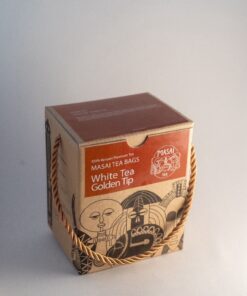
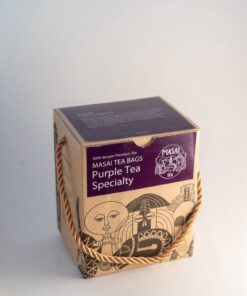
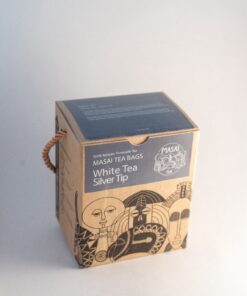
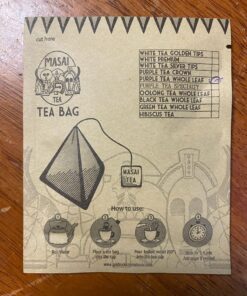
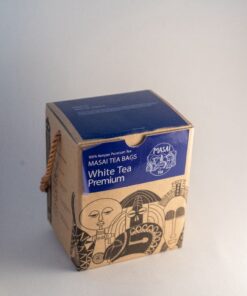
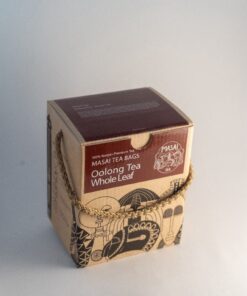
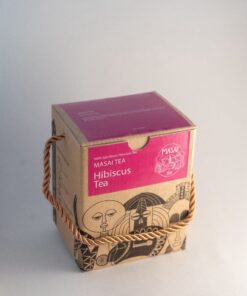
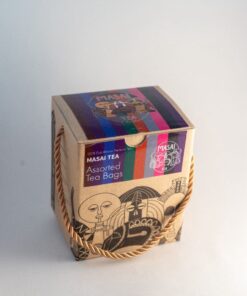
Reviews
There are no reviews yet.